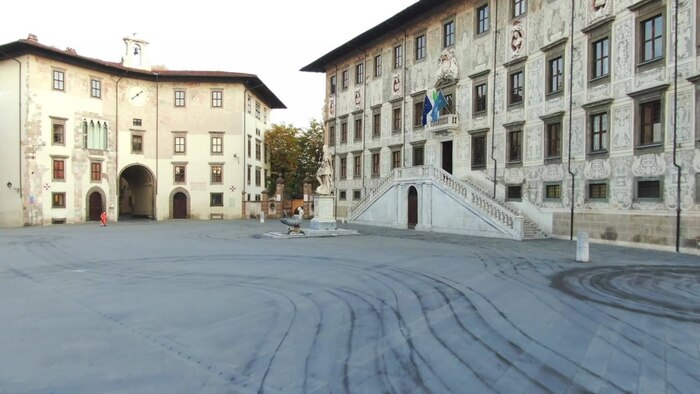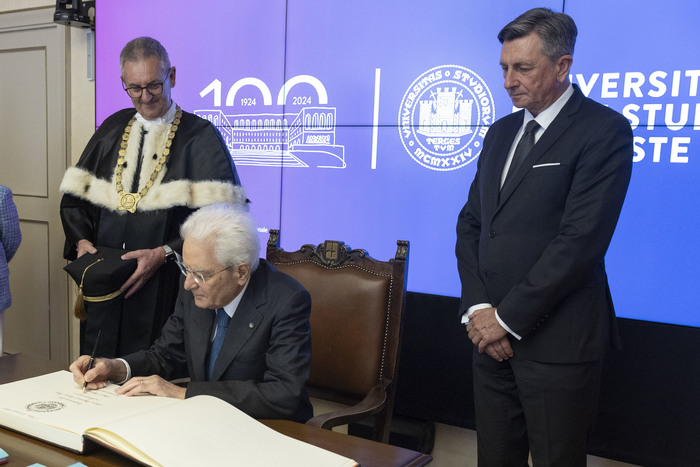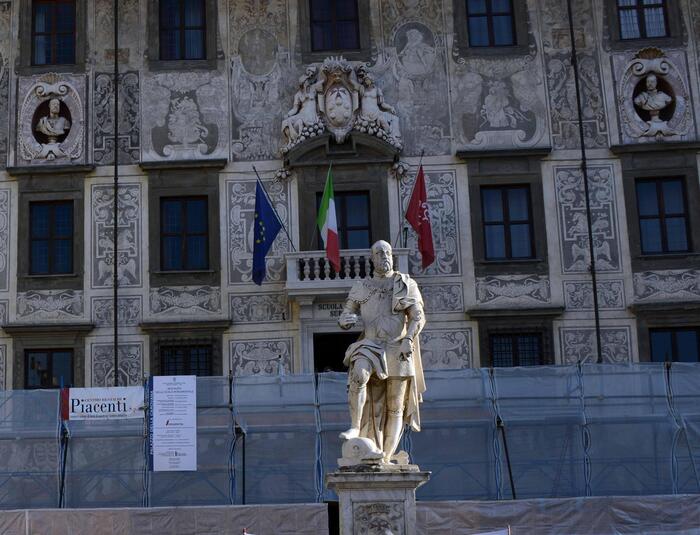Josep Maria Garrell (Tarragona, 53 years old) will become on July 1 the first Spaniard to head the Association of European Universities (European University Association (EUA), which hosts 850 institutions from 49 countries. Rector of Ramon Llull University between 2012 and 2022 and professor of Artificial Intelligence, Garrell takes over with 77% of the votes – there were three candidates – at a time of enormous changes in Europe. After Brexit in the United Kingdom – which leaves out some of the best universities in the world – and coinciding with the construction of 44 campus alliances thanks to the solid political and financial commitment of the European Commission, staff and students will move and research together.
Question. What will be your first step?
Answer. The EUA strategic plan is still valid, but we did it before the [Ukraine] war and covid. We have to rebuild ourselves. Wesuspended the membership of Russian universities that signed a public declaration of support for the war; But we must see how the Russian academic community can be helped. We have a working group to see how we can help Ukrainians in future reconstruction. We are also working on the project Universities and the future of Europe, on what we believe should be done to contribute to solving the continent's challenges. And this means influencing policy. What are we finding? Something that has been brewing for a long time and that is related to the decline of democratic quality throughout the world and particularly in Europe. Not only in Hungary, other things are happening in other countries, and it is detrimental to university autonomy, academic freedom... The University Autonomy in Europe: Scorecard 2023 has brought to light problems that are occurring, such as the reduction of democratic quality in Europe.
Q. Is Hungary the most serious case?
A. Yes. We have dedicated a chapter of the Autonomy Scorecard to it. In Hungarian public universities, which have become something akin to a foundation, it is essentially the government that appoints the trustees – without a counterpoint from the university community; Automatically its real autonomy goes down. Then there are symptoms in some countries that are surprising. For example, the Swedish rectors' conference is reacting very strongly because they have suddenly changed the duration and selection of trustees. It is a government decision without the participation of universities. Things are also happening in Poland and Turkey and we have to look at it from a global perspective.
Q. And in Spain? Its public universities are in the third of the four levels of financial and academic autonomy in their study.
A. You have to see what they need to be able to decide, you have to trust and you have to organize accountability mechanisms. Only in this way will it be possible to compete better in this international environment. I'm not talking about independence, I'm talking about autonomy.
Q. Do you agree with Minister Joan Subirats that the European Commission's university policy must already be seen in a national key?
A. The European Commission is able to get you a European university strategy, the university alliances initiative, the Erasmus mobility programme or a framework programme; and this has a very direct influence in the medium and long term on the policy of the States, which are the ones who have the competences. I welcome the fact that the minister is trying to influence European policy to be in line with his ideas. It's what suits us, there are other countries that have been exercising it [their power] for a lot of years.
Q. Which States?
A. France, Germany and Poland have a very professional agenda to influence university and research policy, very much aimed at defining what is best for the European Union, I do not say for the benefit of their interests. Logically, if you have the ability to influence policy, it is very likely that, at least psychologically, you are more prepared; and then you can benefit a little more. In Spain we understand more and more that Europe is the future.
Josep Maria Garrell, at Ramon Llull University. Albert Garcia
Q. Behind Emmanuel Macron's commitment to university alliances was his conference of rectors?
A. I don't know from whom the idea started, but his lecture tried to convince the others. I remember a meeting of higher education ministers in Paris in 2018. It was closed by the French Prime Minister, Édouard Philippe, and when I saw that he was talking about the subject without papers I thought: this is serious. We will see what it ends up in, because nobody doubts the cooperation, but it will be the details that make it a success or not.
Q. What can run aground?
A. One of the goals is that alliances only include 10% of universities, and what about the remaining 90%? We cannot afford to be interpreted as elite and nothing more. There are universities that cannot or do not want to be by their own strategy, but that, nevertheless, exercise a tremendously important role of social cohesion and should not be considered second-class universities, right? If partnerships are a pilot program to see how it evolves, welcome. The Commission would be very intelligent if it listened to the experience of the participating universities in order to adjust the instrument.
Hungary consecrates the blow to its public universities: "Academics are still in 'shock'
Q. There are also differences within the alliances.
A. Some States have bet economically, some have facilitated legislation... If you are a university, for example, Spanish, that participates in a consortium with a German one, you have to know that this one is going to receive the money from the Commission and, most likely, it is going to multiply it by two with the funds of Germany. What we need to do is clearly identify what we need [in the partnership system] to do better, because we have to cut red tape or create a commonframework for doing, for example, joint degrees. When the Commission presented the European University Strategy at the ministerial conference, the reaction was not good. They were charged with interference with competence.
Q. Spain wants to take advantage of its European presidency to propose the inclusion of Latin American universities within the alliances in fields that are leading. What do you think?
A. If one believes that knowledge has no borders, then for coherence it does not have them outside Europe, which shouldencourage joint degrees, mobility, projects ... If Latin America had a horizon of convergence, as it has existed in Europe for many years, it would probably facilitate it.
Q. What will happen to the UK? After the agreement for Northern Ireland, the rectors hope to return to the Erasmus program.
A. We must be well aware that the priority of the post-Brexit negotiation is not us. What happens in the general framework will apply to the universities themselves. Now the issue is how to negotiate that the European [research] programmes and the Erasmus programme are fair to both parties. They have launched their Erasmus – which is not exactly what we know [Turing Scheme] – they are launching Pioneer, also known as plan P, in case they are not able to negotiate [the next] Horizon Europe [the framework program for research and innovation of the European Union for the period 2021-2027 endowed with 95,500 million euros]. They will put money to attract talent, encourage the collaboration of their research groups with others and for infrastructures. It is clear that if the United Kingdom, and let us not forget Switzerland, are not part of this framework, perhaps economically it will be the same, but there will be more difficulties. The EUA is betting on a good agreement that would at least mitigate the exit of the United Kingdom from the European Union. The fact that British universities are outside the alliances creates a lot of problems. It is clear that the United Kingdom, a power of knowledge, is a less attractive destination to go, because there are many people who were going to stay and now you do not know if you stay. The truth is that many people leave.
You can follow EL PAÍS EDUCACIÓN onFacebook and Twitter, or sign up here to receive our weekly newsletter.
75% discount
Subscribe to continue reading
Read without limits
Read more
I'm already a subscriber

/cloudfront-eu-central-1.images.arcpublishing.com/prisa/5SC4RAIMB5DUDI5JNNGKVUQK2A.jpg)





/cloudfront-eu-central-1.images.arcpublishing.com/prisa/2BJPLFOPENCKDMK6PPADXUU37E.jpg)
